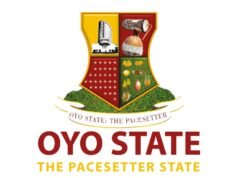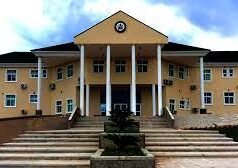South Africa’s higher education system is renowned for its diversity and quality, offering a wide range of opportunities for students from various academic backgrounds. One pertinent question that arises among students holding Higher National Diploma (HND) certificates or undergraduate degrees with Second Class or Third Class honors is whether they are eligible for master’s degree programs in South Africa.
The good news is, yes, several universities and schools in South Africa offer pathways for such students to advance their education and career prospects. This blog post digs into the specifics of these opportunities, including eligibility criteria, and lists the institutions that welcome students with these qualifications.
Eligibility Criteria for HND, Second Class, and 3rd Class Graduates In South Africa Universities and Schools
Table of Contents
Below, we outline the key eligibility requirements that HND, Second Class, and Third Class graduates need to be aware of when applying to South African universities and schools for master’s programs:
- Bridging Programs: Some universities may require HND holders or Third Class degree graduates to complete a bridging or pre-master’s program to enhance their academic qualifications before admission into a master’s program.
- Work Experience: Practical work experience in a field relevant to the desired master’s program can be a crucial requirement, especially for those with HND qualifications or a Third Class degree. Applicants may need to demonstrate a certain number of years of work experience to be considered for admission.
- Letters of Recommendation: Applicants might be asked to provide letters of recommendation from academics or professionals who can vouch for their academic abilities and potential for success in a postgraduate program.
- Statement of Purpose: A well-written statement of purpose that outlines the applicant’s academic interests, professional goals, and reasons for choosing the specific master’s program can significantly boost their application.
- English Proficiency: Non-native English speakers are usually required to provide proof of English proficiency through standardized tests such as TOEFL or IELTS, even if their previous education was conducted in English.
Understanding these criteria and ensuring all requirements are met can enhance an applicant’s chances of gaining admission to a master’s degree program in South Africa, even with HND, Second Class, or Third Class qualifications.
Read Also: USAID Undergraduate Scholarship Application 2024/2025
List Of South Africa Universities that Accept HND Certificates, Second Class and 3rd Class for Masters Degree Programs
For students with HND certificates, Second Class, or Third Class degrees looking to pursue master’s degree programs in South Africa, several universities provide opportunities for advancement. Each institution has its specific criteria and may offer unique preparatory courses or requirements to ensure students are well-prepared for postgraduate studies. Here is a list of notable South African universities that are known to accept these qualifications for their master’s degree programs:
1) University of Cape Town (UCT)
UCT is one of Africa’s leading research institutions, offering a wide range of Master’s degree programs across various disciplines. The university values diversity and welcomes applicants with diverse academic qualifications.
2) University of the Witwatersrand (Wits)
Wits University is renowned for its academic excellence and offers numerous Master’s degree programs designed to prepare students for leadership roles in their respective fields. The university embraces applicants from diverse academic backgrounds.
3) Stellenbosch University
Stellenbosch University is committed to academic excellence and offers a diverse array of Master’s degree programs across multiple faculties. The university welcomes applicants with HND certificates, as well as Second Class and Third Class degrees.
4) University of Pretoria (UP)
UP is one of South Africa’s leading research universities, offering a broad spectrum of Master’s degree programs designed to meet the needs of today’s global workforce. The university encourages applications from candidates with diverse academic qualifications.
5) University of KwaZulu-Natal (UKZN)
UKZN is known for its commitment to academic excellence and offers a wide range of Master’s degree programs across various disciplines. The university embraces diversity and welcomes applicants with diverse academic backgrounds.
Each of these universities has its unique strengths and areas of specialization, making them attractive options for prospective master’s students with HND certificates, Second Class, or Third Class degrees. Applicants are encouraged to contact the admissions offices directly for the most current information on eligibility, application procedures, and any preparatory course requirements.
South Africa Schools that Accept HND Certificates, Second Class and 3rd Class for Masters Degree Programs
In addition to universities, South Africa is home to a number of educational institutions and schools that offer master’s degree programs to students with varied academic backgrounds, including those with HND Certificates, Second Class, and Third Class degrees. These institutions often have tailored programs or pathways designed to bridge the gap between the students’ current qualifications and the academic rigor of a master’s degree. Below is a comprehensive list of such schools:
1) Cape Peninsula University of Technology (CPUT)
CPUT is well-regarded for its practical approach to education and offers postgraduate programs that are accessible to HND holders and graduates with lower undergraduate classifications, emphasizing the application of knowledge in real-world scenarios.
2) Tshwane University of Technology (TUT)
At TUT, the focus is on providing quality education that equips students with the skills needed for the workforce. HND graduates, as well as those with Second and Third Class degrees, are considered for master’s programs, with some departments requiring additional preparatory coursework.
3) Nelson Mandela University (NMU)
NMU values diversity in its student body and academic offerings. It provides several postgraduate opportunities for students with varied academic records, including those needing additional academic support through foundation programs.
4) Central University of Technology (CUT)
Known for its strong emphasis on technology and innovation, CUT welcomes applications from students with HND certificates and those who have achieved Second or Third Class in their undergraduate studies, offering specific programs designed to enhance their skills and qualifications.
5) Vaal University of Technology (VUT)
VUT has programs in place to support HND holders and graduates with lower classifications, acknowledging the potential of each student and providing avenues for advanced studies in technical and vocational fields.
These schools recognize the importance of inclusive education and offer various support mechanisms, including bridging courses and tailored advising, to ensure that students from all academic backgrounds have the opportunity to succeed in their postgraduate studies. Candidates interested in these opportunities are encouraged to reach out directly to the institutions for detailed information on admission requirements and program specifics.
FAQS
Can I apply for Masters with my HND certificate?
While not all universities accept Higher National Diplomas (HNDs) as a qualification equivalent to a bachelor’s degree, there are some universities in South Africa that do accept HNDs for admission into their master’s degree programs. It is important to carefully research the specific requirements of the university and program you are interested in to ensure that you meet the necessary criteria.
Does the University of Calgary accept HND for Masters degree?
While the University of Calgary is a world-class institution, it does not accept Higher National Diplomas (HNDs) as a qualification for admission into its master’s degree programs. This is because HNDs are not considered to be equivalent to bachelor’s degrees in Canada.
Can I use HND for Masters in Canada?
While a Higher National Diploma (HND) is not considered to be equivalent to a bachelor’s degree in Canada, it may be possible to use your HND as a stepping stone to a master’s degree program. Many universities in Canada offer graduate certificate or diploma programs that can bridge the gap between an HND and a master’s degree, and these programs may even be designed specifically for international students with an HND.
Does Australia university accept HND for Masters?
In Australia, there is no one-size-fits-all answer to whether or not a Higher National Diploma (HND) can be used for admission into a master’s degree program. The decision is ultimately up to the individual university, and their specific requirements for master’s programs. Some universities may accept HNDs as equivalent to bachelor’s degrees for admission into their master’s programs, while others may require additional qualifications or experience.
Can I do Masters with a second class lower (2:2) in Canada?
In Canada, the requirements for admission into a master’s degree program vary by university and program. However, many universities in Canada will accept applicants with a second class lower (2:2) undergraduate degree. Typically, a 2:2 is considered equivalent to a GPA of 3.0 on a 4.0 scale.
Conclusion
South Africa has a well-established higher education system that offers a wide range of opportunities for students with different academic backgrounds. Many universities and schools in the country accept HNDs, second class, and 3rd class degrees as valid qualifications for their master’s degree programs.
This is because HNDs are widely recognized in South Africa as a credible qualification that can prepare students for postgraduate studies. Additionally, some universities in South Africa may even offer bridging courses to help students with lower qualifications meet the requirements for a master’s degree. As such, South Africa is a great place for students with different academic backgrounds to pursue further education.









